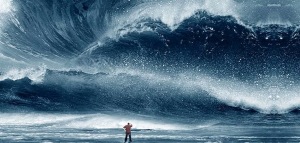1) Addiction- Dependence on a substance, such as alcohol or drugs. It’s usually characterized by impaired control over preoccupation with the use of the substance, as well as continued use of the substance despite adverse consequences.
2) Affective disorder- A type of mental disorder affects mood and interferes with the ability to function, such as major depressive disorder and bipolor disorder.
3) Alcoholism- A disease in which there’s a craving for alcohol and continued drinking despite alcohol related problems, such as legao trouble. Also impaired control over your drinking, a physical dependence on alcohol, and alcohol tolerance requiring increasing amounts of alcohol to feel it’s effects.
4) Anorexia nervosa- An eating disorder by a morbid fear of weight gain that causes lack of appetite or severe restriction of food intake, resulting in extreame weight loss or stravation.
5) Antisocial Personality Disorder- A mental disorder in which there’s a disregard for and violation of rights of others, behavioral patterns include deceitfulness, lack of conformity to social norms, and reckless disregard for the safety of others or the self.
6) Anxiety Disorder- A group of conditions marked by persistent, extreme or pathological anxity. They may be manifested by disturbances in mood or emotions, as wellas by physiological sysptoms, such as elevated blood pressure, rapid breathing, and heart rate.
7) Anxiety- Range from feelings of uneasiness to immobilizing bouts of terror most people experience anxiety at some point in their lives and some nervousness in anticipation of a real situation. However if a person cannot shake unwanted worries or if the feelings are jarring to the point of avoiding everyday activities, he or she most likely has an anxiety disorder.
8) Binge Eating- Regular episodes of uncontrolled eating of large amounts of food, without the purging in bulimia nervosa.
9) Bipolar Disorder- Extreme mood swings by periods of evenkeeled behavior characterize this disorder. Bipolar tends to run in families. It usually begins in th mid twenties and continues throughout life. Without treatment people who have bipolar often go through devastating life events such as marital breakups, job loss, substance abuse, and suicide.
10) Bulimia Nervosa- An eating disorder by excessive eating. People who have bulimia will eat an excessive amount of food in a single episode and almost immediately make themselves vomit or use laxatives or diuretics (water pills) to get rid of food in their body. This behavior often is referred to as the binge/purge cycle. Same as people with anorexia, people with bulimia have an intense fear of gaining weight.
11) Compulsion- An uncontrollable, repetitive and compelling urge to perform certain acts, such as hand washing, which has no immediate benefit beyond relief of anxiety. It’s the behavioral manifestation of an obsession also known as OCD
12) Cutting- A form of self injury or mutilation done intentionally in an effort to seek relief from escalating emotional pain.
13) Denial- Refussal to acknowledge some aspect of reality or personal experience.
14) Dependence Drug- Compulsive need to take a drug or substance to produce a desired effect or prevent unpleasant effects if use is stopped.
15)Detoxifaction- Theprocess of cleansing the body of a drug, such as alcohol or other chemicals.
16) Dual Diagnosis- Having a substance abuse problem along with another psychiatric disorder.
17) Eating Disorder- A broad group of mental disorders characterized by abnormal and potentially harmful eating behaviors and habits, such as anorexia nervosa, binge eating disorder and bulima nervosa.
18) Depression- Depression is a mood disorder by intense feelings of sadness that persist beyond a few weeks. Two neurotransmitters natural substances that allow brain cells to communicate with one another are implicated in depression serotonin and norepinephrine.
19) Mental Health Problems- Mental health problems are real. They affect one’s thoughts body, feelings, and behavior. Mental health problems are not just a passingphase. They can be serve, seriously interfere, bipolar disorder (manic depressive illness) attention defict hyperactivity disorder, anxiety disorders, eating disorders, schizophrenia, and conduct disorder.
20) Obsessive Compulisive Disorder- Isa chronic relapsing illness. People who have it sufer from recurrent and unwanted thoughts or rituals. The obsessions and the needto perform rituals can take over a person’s life if left untreated. They feel they cannot these thoughts or rituals.
21) Panic Disorder- An anxiety disorder by chronic unexported episodes of potentially disabling intense fear or anxiety often accompanied by physical systoms, such as rapid heartbeat and dizziness.
22) Post Traumatic Stress Disorder- Researches now know that anyone, even children, can develop PTSD if they have experienced witnessed, or participated in a traumatic occurrence especially if the event was life threating. PTSD can result from terrifying experiences such as rape, kidnapping, natural disasters, or war or serious accidents such as airplane crashes. The psychological damage such incidents cause can interfere with a person’s ability to hold a job or to develop intimate relationships with others. The symptoms of PTSD can range from constantly reliving the event to a general emotional numbing. Persistant anxiety, exaggerated startle reactions are common. People with PTSD typically aviod situations that remind them of the traumatic event, because they provoke intense distress or even panic attacks.
23)Relapse- Reappearance of disease signs and symptoms after apparent recovery.
24) Schizophrenia- Is a mental disorder by positive and negative systoms psychotic or positive symptoms include delusions, hallucinations, and disordered thinking apparent from a person’s fragmented disconnected and sometimes nonsensical speech. Negative symptoms include social withdrawl, extreme apathy, diminished motivation, and blunted emotional expression.
25) Substance Abuse- Misuse of medications, alcohol or other illegal substances.
26) Suicide- The 8th leading cause of death in the united states, claiming about 30,000 lives a year. 90% of people who commit suicide have a depression or another diagnosable mental or substance abuse disorder. Suicide attempts are among the leading causes of hospital admissions in persons under 35. The highest sucide rates in the us are found in white men over the age of 85.
27) Sexual Abuse- Phychological or physical injury of a sexual nature, such as rape, incest, fondling and indecent exposure.
28) Social Anxiety Disorder- A type of anxiety disorder that causes significant anxiety and discomfort related to a fear of being embarrassed, judged, humiliated or scorned by others in social or performance situations also called social phobia.
Click on the vitamins to help you get through the process of addiction! You need vitamins daily regardless,you really need them when suffering from addiction 
